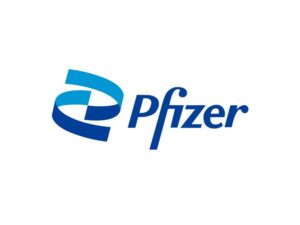Did you know that the global pharmaceutical market is projected to reach a staggering $1.9 trillion by 2027? In this cutthroat industry, Bristol Myers Squibb (BMS) stands as a titan – but it’s not alone. Today, we’re diving into the world of Big Pharma to explore BMS’s top 10 competitors. Buckle up, because we’re about to embark on a journey through the pharmaceutical landscape that’ll knock your socks off!
The Pharmaceutical Landscape: Setting the Stage
Before we jump into the nitty-gritty of BMS’s competitors, let’s set the stage. The pharmaceutical industry is a complex beast, driven by rapid technological advancements, changing global health needs, and ever-evolving regulatory landscapes.
Bristol Myers Squibb has carved out a formidable position for itself, particularly in oncology, hematology, immunology, and cardiovascular diseases. With blockbuster drugs like Eliquis and Opdivo in its arsenal, BMS is a force to be reckoned with. But in this high-stakes game, the competition is fierce, and the players are numerous.
What makes this industry so competitive? It’s a perfect storm of factors:
- Enormous R&D costs and long development timelines
- Patent cliffs that can make or break a company’s fortunes
- Increasing pressure for affordable healthcare solutions
- The race to innovate in emerging fields like gene therapy and immunotherapy
Now, let’s meet the top 10 heavyweights going toe-to-toe with BMS.
Top Competitors of Bristol Myers Squibb (BMS)
1. Pfizer

Website – https://www.pfizer.com/
First up in our lineup is none other than Pfizer – a name that’s become household famous, thanks in no small part to its COVID-19 vaccine. But Pfizer’s reach extends far beyond pandemic solutions.
Pfizer’s strengths lie in its diverse portfolio, spanning from vaccines to oncology drugs. Like BMS, Pfizer has a strong oncology presence, but it also dominates in areas where BMS has less of a footprint, such as vaccines and rare diseases.
When we compare product portfolios, it’s like watching two boxers with different fighting styles. BMS throws powerful punches with drugs like Opdivo and Yervoy in immuno-oncology, while Pfizer counters with its own heavyweights like Ibrance for breast cancer and Xalkori for lung cancer.
But here’s where it gets interesting – Pfizer’s recent innovations and market strategies have been nothing short of revolutionary. Their mRNA vaccine technology, developed with BioNTech, has opened up new avenues not just for infectious diseases, but potentially for cancer treatments too. It’s like they’ve unlocked a new superpower, and you can bet BMS is watching closely!
2. Merck & Co.
Website – https://www.merck.com/
Next up, we have Merck & Co. (known as MSD outside North America) – a company with a research pedigree that would make any lab rat green with envy.
Merck’s historical significance in the pharma world is hard to overstate. They’re the folks who brought us breakthrough vaccines for measles, mumps, and rubella. But in 2024, Merck is all about oncology and immunology – sound familiar?
When we put Merck and BMS side by side in oncology, it’s like watching two grandmasters play chess. Merck’s Keytruda has been going head-to-head with BMS’s Opdivo in the immuno-oncology space, often coming out on top. It’s a rivalry that’s reshaping cancer treatment as we know it!
But Merck isn’t resting on its laurels. Their pipeline is bursting with potential, particularly in oncology and vaccines. They’re betting big on personalized cancer treatments and novel approaches to hard-to-treat cancers. If even a fraction of these pan out, BMS might find itself playing catch-up.
3. Johnson & Johnson
Website – https://www.jnj.com/
Now, let’s shift gears and talk about Johnson & Johnson – a company so diversified, it’s like the Swiss Army knife of healthcare.
Unlike BMS, which focuses primarily on pharmaceuticals, J&J has its fingers in many pies – from band-aids to biotechnology. This diversity can be both a strength and a weakness when competing with specialists like BMS.
In the pharmaceutical arena, J&J’s Janssen division goes toe-to-toe with BMS in areas like immunology and oncology. Their drugs like Stelara and Darzalex are major players in these fields. But J&J’s true competitive edge might lie in its ability to leverage its consumer health and medical device divisions to create integrated healthcare solutions.
J&J’s strategy for staying competitive? Innovation, innovation, and more innovation. They’re pouring resources into cutting-edge fields like robotics-assisted surgery and 3D-printed drugs. It’s like they’re playing chess while everyone else is playing checkers!
4. Novartis
Website – https://www.novartis.com/
Switching continents, let’s talk about Novartis – the Swiss pharma giant that brings precision engineering to drug development.
Novartis’s global presence is impressive, with a research network that spans the globe. When it comes to oncology and cardiovascular diseases, Novartis and BMS often find themselves in direct competition.
In the oncology space, Novartis’s CAR-T cell therapies like Kymriah are pushing the boundaries of what’s possible in cancer treatment. Meanwhile, their heart failure drug Entresto has been giving BMS’s cardiovascular division a run for its money.
But here’s where Novartis really shines – their commitment to digital health initiatives. They’re leveraging AI and big data in drug discovery and development in ways that could revolutionize the industry. It’s like they’re building a crystal ball to predict the future of medicine!
5. Roche
Website – https://www.roche.com/
Next up is Roche, a company that’s unique in our lineup for one big reason – its dual focus on pharmaceuticals and diagnostics.
This two-pronged approach gives Roche a distinct advantage in the era of personalized medicine. They can develop a drug and a diagnostic test to go with it, creating a powerful package that’s hard to beat.
When we compare oncology portfolios, Roche and BMS are like two titans clashing. Roche’s drugs like Tecentriq and Avastin go head-to-head with BMS’s oncology lineup. But Roche’s diagnostics division gives them an edge in identifying the patients most likely to benefit from these treatments.
Looking to the future, Roche’s pipeline is packed with promise, particularly in neuroscience and immunology. They’re betting big on Alzheimer’s treatments – a field that could be the next big battleground in pharma.
6. AstraZeneca
Website – https://www.astrazeneca.com/
AstraZeneca has seen a remarkable resurgence in recent years, driven by smart acquisitions and a laser focus on oncology and respiratory medicine. Their growth has been so impressive, it’s like watching an underdog boxer suddenly start landing knockout punches!
In oncology, AstraZeneca’s Tagrisso and Imfinzi have been giving BMS a run for its money. And in respiratory medicine, drugs like Symbicort have been consistent performers.
But what really sets AstraZeneca apart is their knack for strategic partnerships. Their collaboration with Daiichi Sankyo, for instance, brought us the groundbreaking breast cancer drug Enhertu. It’s like they’ve mastered the art of pharmaceutical matchmaking!
7. Gilead Sciences
Website – https://www.gilead.com/
Gilead Sciences might not be as diversified as some of the other players on our list, but boy, do they pack a punch in their areas of focus!
Known primarily for their work in virology, Gilead has been a key player in the fight against HIV and hepatitis C. Their drug Biktarvy is currently the most prescribed HIV regimen in the U.S. But don’t think they’re a one-trick pony – Gilead has been making significant strides in oncology too.
Their acquisition of Kite Pharma put them squarely in the CAR-T cell therapy race, competing directly with Novartis and indirectly with BMS in the broader oncology space. It’s like they’ve gone from sprinting to suddenly joining a decathlon!
8. Amgen
Website – https://www.amgen.com/
Amgen is a bit of a special case in our lineup. As one of the world’s largest biotechnology companies, they bridge the gap between traditional pharma and cutting-edge biotech.
Amgen’s strengths lie in areas like oncology, cardiovascular disease, and bone health. Their drugs Enbrel (for rheumatoid arthritis) and Prolia (for osteoporosis) are major revenue generators. But it’s their work in innovative therapies that really turns heads.
For instance, their KRAS inhibitor Lumakras is breaking new ground in lung cancer treatment, potentially challenging BMS in this space. And their biosimilars business? It’s like they’re playing both offense and defense at the same time!
9. Sanofi
Website – https://www.sanofi.com/en
Sanofi brings a distinctly European flavor to our list of competitors. With a strong presence in diabetes, vaccines, and rare diseases, Sanofi offers a different kind of challenge to BMS.
Their blockbuster drug Dupixent, used to treat various inflammatory conditions, has been a game-changer. And in the world of rare diseases, Sanofi’s Genzyme unit is a force to be reckoned with.
But here’s where it gets interesting – Sanofi has been making big moves in immunology and oncology, areas where BMS is traditionally strong. It’s like watching a seasoned boxer suddenly switch up their fighting style mid-match!
10. AbbVie
Website – https://www.abbvie.com/
Last but certainly not least, we have AbbVie. Spun off from Abbott Laboratories in 2013, AbbVie has quickly established itself as a major player in the pharma world.
AbbVie’s claim to fame is Humira, the world’s best-selling drug for many years running. While Humira is now facing biosimilar competition, AbbVie has been busy diversifying its portfolio.
Their acquisition of Allergan brought them into new therapeutic areas like aesthetics and neuroscience. But it’s in immunology where AbbVie and BMS really go head-to-head. With drugs like Rinvoq and Skyrizi, AbbVie is showing it’s got plenty of fight left in it!
Competitive Strategies: How BMS Stays Ahead
So, with all these formidable competitors, how does Bristol Myers Squibb stay in the game? It’s all about playing to their strengths and staying nimble.
BMS has some key competitive advantages:
- A strong focus on high-value therapeutic areas like oncology and immunology
- A history of successful mergers and acquisitions (hello, Celgene!)
- A robust pipeline filled with potential blockbusters
Their strategy involves doubling down on these strengths while also keeping an eye on the future. They’re investing heavily in cutting-edge areas like cell therapy and protein degradation. It’s like they’re simultaneously fortifying their castle and sending out explorers to discover new lands!
Conclusion
Phew! What a wild ride through the pharmaceutical jungle, right? We’ve seen how Bristol Myers Squibb faces fierce competition from pharma giants and nimble upstarts alike. But here’s the kicker – in this high-stakes game of molecular chess, it’s not just about who’s biggest, but who’s smartest.
As we’ve discovered, BMS holds its own with a potent mix of innovation, strategic partnerships, and a laser focus on key therapeutic areas. The question is, will they maintain their edge in the ever-evolving world of medicine?
Only time will tell, but one thing’s for sure – the future of healthcare has never looked more exciting! Whether it’s BMS, Pfizer, Merck, or an upstart we haven’t even heard of yet, the real winners will be patients benefiting from these incredible medical advancements. So here’s to the future of pharma – may the best molecule win!
Also Read: Top Competitors of Sanofi: Comprehesive Analysis of Pharma
Also Read: An Analysis of Top Regeneron Pharmaceuticals Competitors
Also Read: Top Competitors and Alternatives of Amgen
Also Read: Exploring Novartis Top Competitors and Alternatives
Also Read: Who are Abbvie’s Top Competitors and Alternatives ?
Also Read: Who are Merck’s Top Competitors and Alternatives?
To read more content like this, subscribe to our newsletter
Go to the full page to view and submit the form.

